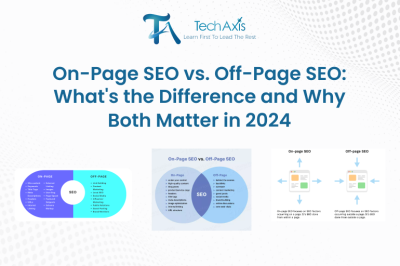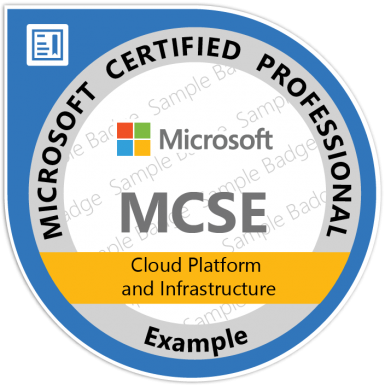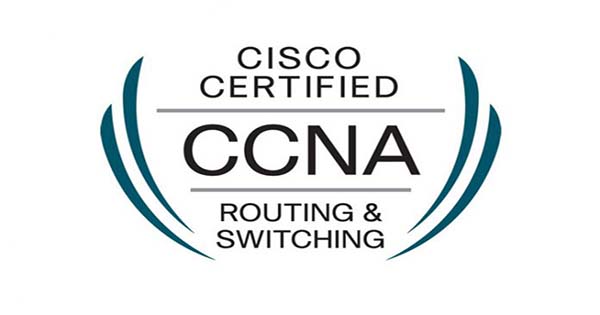
Difference Between On-Page SEO vs. Off-Page SEO: Why Both Are Crucial in 2024
In today’s world, where the presence of a company on the Internet can be the key to success, SEO is crucial. It therefore entails the manipulation of factors within sites to increase their ranking in search engines while increasing popularity and traffic. If there are a lot of aspects in SEO, then on-page and off-page SEO can be considered to be the key categories. Knowing the difference between on-page and off-page SEO is especially important when designing a diverse and effective SEO strategy aimed at improving website ranking and increasing the flow of visitors.
On-page SEO deals with structures on your website including keywords, meta tags and content optimization, while off-page SEO deals with factors outside the website including backlinks and social media activity. On-page and off-page SEO capacities are both essential; unaccompanied, a website can never reach the top of the search engine listings. If both approaches are integrated, the result is a strong SEO platform that will enhance the business and its competitiveness in the digital environment. Feeling lost in SEO or just seeking to improve? Understanding on-page and off-page SEO is an essential step toward online success.
Understanding On-Page SEO
On-page SEO is also referred to as on-site SEO, which indicates the various factors which are incorporated into its website so that it can achieve a good ranking on search engines and a greater number of organic traffic. While an off-page SEO strategy is applied outside a given website, on-page SEO is done on the web page to improve its usability and structure for both users and crawlers. Much of the work of on-site optimization is centred on boosting the ranking, visibility and traffic of a site.
Core On-Page SEO Factors
- Keyword Optimization: Keyword optimization is one of the critical aspects of on-page SEO. It entails using search terms and Keywords and incorporating them into the content much as the search engines discern them. Meta tags involve titles and descriptions, headers, and the main content of the page. Meta tags are an HTML attribute enabling website creators to give search engines short descriptions of the page to increase click-throughs. Header tags are about H1, H2, and H3: doing the right formatting helps in the arrangement and systematic planning of the content in such a way that the user and the search engine can find it easy to understand or to work with.
- Content Quality and Relevance: Content is a core part of the strategy in on-page SEO. Better content not only provides information to the users but also keeps them on the Page and minimizes bounce rates. A good flow with short parsings, bullets and illustrations is helpful in easily navigating through the whole article. Relevance reflects the idea of addressing users’ needs and providing value and freshness, which are highly appreciated by search engines.
- URL Structure: The URLs should be easy, and meaningful and should contain the primary keyword, or more often called ‘search-engine optimized URLs’. A proper format of URLs increases the usability of the website and provides better-crawling results for search engines.
- Image Optimization: Reduction of images includes adding alt text to the image, reducing the size of the image and also getting the right format increasing the loading of the page. For the accessibility of imagery on any website, there is the use of alt text, which helps search engine crawlers in rating the websites.
- Mobile Optimization: As the traffic is shifting to mobile, having a website friendly for mobile users is crucial. Bear in mind that making a site design responsive, which makes the user experience across the devices optimal, improves both usability and the search engine ranking.
The use of the on-page SEO factors stated above will go a long way in enhancing the visibility of any website and ultimately the user experience that’s needed for great online success.
Understanding Off-Page SEO
Off-page SEO is a process that involves optimizing your website through activities that are carried out out-of-site in an endeavour to help your site rank high on the various SERPs. All these techniques aim at the establishment of the website’s authority, credibility and importance through the approval by other websites and social networks as well as special online communities. Off-page SEO is a critical aspect of building trust, which is a compliance factor that search giants such as Google value enormously.
Core Off-Page SEO Techniques
- Backlink Building: Inbound or backlinks are widely considered one of the most important elements of off-page SEO. They perform the function of a referendum on other similar websites, letting search engines know that people find the provided information helpful.
- Types of Backlinks:
i.Follow: They transfer the SEO value which directly relates to ranking.
Ii. Nofollow: These links are not SEO influencing, yet they are crucial for directing clients to the site and introducing the organization. - Backlink Strategies:
i.Guest Posting: Creating articles that are submitted to other reliable sites as a way of creating backlinks.
ii. Outreach: Contacting website owners with hopes of getting the content promoted and linking back.
iii. Broken Link Building: Offering your content as a replacement for the links that are no longer ‘working’ on any other site out there. - Social Media Marketing: Social network use strengthens references and increases the outreach of a brand while it can attract more visitors to the website. The social media links are most often ‘nofollow’ but they increase the general website visibility and can be followed by other sites.
- Brand Building and Reputation Management: Search engines value the idea of establishing a strong brand reputation online because this means that Internet users visiting the site are trusted. Reputation consisting of having a greater number of good reviews and mentions can also affect SEO in an indirect way on the basis of the trust factor.
- Local SEO: For organizations that target particular locales, local SEO assists in enhancing the places that such organizations will occupy in the local search results. This encompasses Google My Business listing, getting reviews, and loading local links, which helps help surge optimize location search.
Why Both On-Page and Off-Page SEO Matter
With the current SEO process, there are two major SEO techniques: on-page SEO and off-page SEO, and the two techniques are closely related but different from each other. On-page SEO lays the right groundwork by optimizing parameters such as keywords, meta tags, quality of the content and URL. On the other hand, Off-page SEO helps establish credibility and trust in a website or web page through link building and promotions other than pure website ranking techniques such as SMM and ORM.
Both of these strategies complement each other, thus, increasing the impact of the process. For instance, the actual text on the page (on-page SEO) will reap value backlinks (off-page SEO), hence enhancing the ranking power of that specific page. Likewise, any off-page efforts established can work to bring in more traffic, and make any content on the pages result in even greater value.
Case Study: An example of the relationships between the above on-page factors is a local business that encountered considerable on-page search engine results through a real business website which was established with relevant keywords and effective URLs. Besides, they participated in local SEO to gain positive reviews on Google My Business and backlinks through community blogs. Consistent with its findings, the identified and integrated on-page and off-page search engine optimization approach created a comprehensive SEO strategy that enhances local search visibility and drives ranking, traffic and conversion.
TechAxis's SEO Training Course will help beginners to understand On-Page and Off-Page SEO
TechAxis’s SEO Training Course is tailored for learners with little to no prior experience in search engine optimization and teaches them about on-page and off-page factors, which are necessary for SEO success. It differentiates the course content between fundamental knowledge, practical skills and business outlook, allowing learners to understand how to tackle the challenges of SEO and promote effective optimization for their websites. Here’s how TechAxis ensures an enriching and valuable learning experience:
- Core SEO Concepts: When coming to TechAxis, you will be given a fundamental understanding of the key concepts of SEO starting from the general difference between on- and page SEO. You will discover why simple and relevant keywords, URLs, meta tags and quality content affect search rankings and how more complex factors such as backlinking, social media and brand management affect the overall authority and findability of the website.
- Practical Application: TechAxis focuses on relevance by training you on how to apply SEO strategy on live websites. The topics covered in the course include practical scenarios regarding the analysis of the SEO health of a website, on-page optimization, and planning and implementation of off-page optimization strategies that give practical lessons in real-world SEO for optimizing any project.
- Latest SEO Trends: SEO is an ever-evolving subject, and it is crucial to know what is going on within this industry. Our SEO Training Course is up to date on the latest learnings about SEO, including Google’s latest algorithm change, new tools, and strategies. Being aware of these trends will help you to be a step ahead of the competition and get a clearer perspective on how to build sustainable performance.
- Expert Guidance: Optimized: The course is conducted by experienced SEO practitioners for SEO industry insiders and newcomers; the instructors explain the refined details of SEO. One-on-one tutoring makes it possible to receive customized assistance in tackling difficulties encountered thus accelerating confidence in a certain skill.
- Hands-On Exercises: TechAxis incorporates practical learning because there are so many opportunities for you to apply specific techniques through exercises and projects. This way you get an opportunity to apply all the concepts learnt such as keyword research, meta-tagging, content optimization as well as back linking which are more of practice rather than theory.
- Community & Networking Support: SEO is not something you can easily master, but with TechAxis you would not feel alone; you can talk to like-minded individuals, exchange some tips and even ask some questions. As your peers engage in these exercises with you, you create a collaborative learning environment, making you never feel like you are solo on this SEO trip.
Conclusion
TechAxis’s SEO Training course is the ideal way to get your start in SEO and establish the strong foundation you need to succeed; it includes instruction from consultants in the field, an opportunity to practice on real projects, and updates on the latest trends in SEO. You will learn all the key factors of on-page optimization such as keyword placement and content relevance as well as all those of off-page optimization including back linking and social media marketing.
This has a very strong positive effect on practical knowledge as well as the confidence to make real changes in search rankings. Besides, earning an SEO certificate at TechAxis is much more than mastering a new skill; it is an opportunity to start a promising digital career on the right foot and assist it with a professional and friendly community as well as enthusiastic instructors. Because SEO is always changing, TechAxis helps you remain relevant with the latest best practices and ready you for whatever is heading our way in the future. It’s time to set the foundation for SEO expertise and employment security.
Make it a reality now and become a part of TechAxis so we can help you transform your SEO career!











